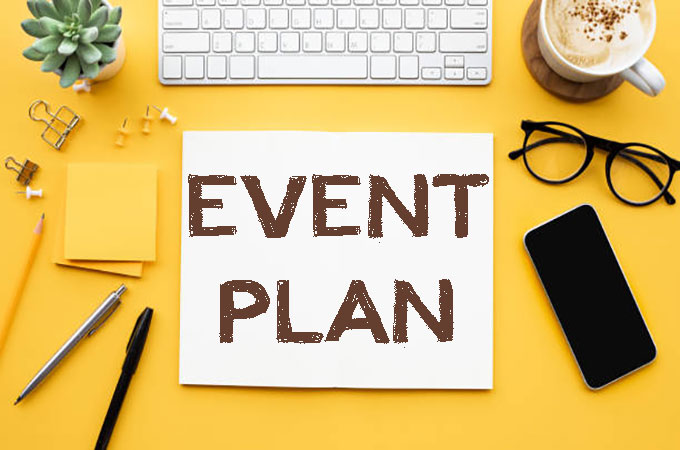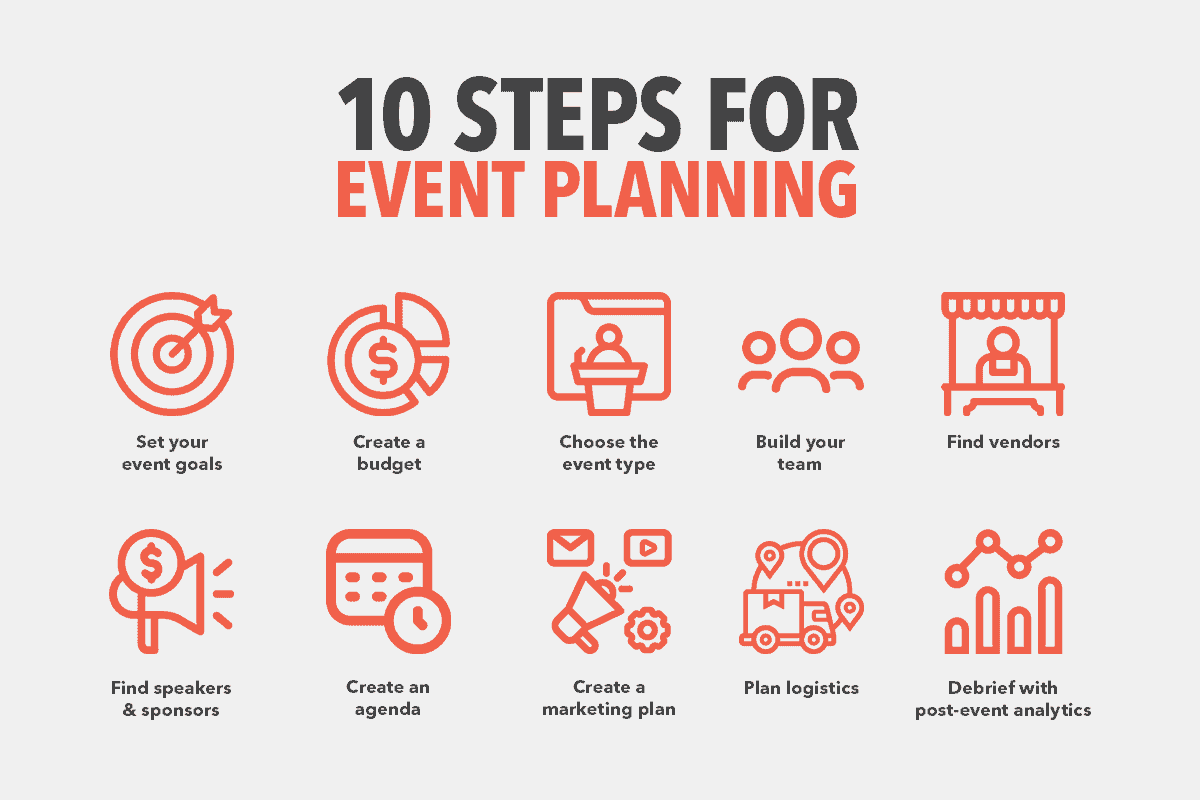Unlocking the Keys of Successful Event Planning for Memorable Knowledge
Successful event planning needs a calculated method that surpasses mere logistics. It includes a cautious consideration of goals, audience, and motifs. Coordinators should concentrate on creating customized experiences that engage guests and foster links. Nonetheless, the course to achieving remarkable occasions is typically loaded with obstacles. Recognizing the nuances of effective planning can expose the potential for really impactful gatherings. What are the essential components that make an occasion remarkable?
Defining Your Event Goals and Goals
Quality is important when defining event goals and purposes, as it establishes the foundation for a successful planning process. By expressing specific goals, event coordinators can create a clear instructions and guarantee that all efforts straighten with the preferred end results. Objectives ought to be obtainable and measurable, making it possible for planners to track progression and examine success successfully.
Identifying the overarching objective of the event, whether it is to educate, delight, or advertise, plays a significant function fit each decision made throughout the drawing board. Stakeholders must be involved in this preliminary definition stage to gather diverse point of views and cultivate a sense of ownership.

Recognizing Your Target market
Comprehending the audience is important for effective event planning. This entails determining target demographics and analyzing their preferences to customize the event experience. By getting understanding right into the audience's rate of interests and attributes, organizers can produce a lot more relevant and engaging events.
Identifying Target Demographics
Exactly how can event organizers assure their events reverberate with attendees? Recognizing target demographics is important for crafting remarkable experiences - event planning companies charlotte nc. Effective planners begin by conducting extensive research to recognize the age, passions, and preferences of their target market. This involves studying elements such as geographical location, social histories, and socioeconomic condition. By segmenting possible attendees right into distinctive groups, coordinators can customize event elements, consisting of places, activities, and styles, to line up with details market features. Involving with prospective participants with surveys or social media sites can offer useful understandings right into their assumptions. Inevitably, this targeted approach enables event planners to create individualized experiences that promote link and engagement, making sure that gatherings not just meet yet exceed the needs of their audience
Analyzing Audience Preferences
As soon as target demographics are determined, the following step includes assessing target market preferences to produce a truly interesting event experience. Recognizing what reverberates with the target market is important for customizing material, tasks, and general environment. This procedure can be accomplished with studies, social media understandings, and past event comments, which give important information on preferences, expectations, and interests. Event planners must focus on crucial aspects such as preferred themes, possible audio speakers, and preferred networking chances. Additionally, watching on arising fads can help in preparing for audience demands. By leveraging this information, coordinators can design events that not only bring in attendees yet likewise urge energetic participation, guaranteeing a memorable experience that straightens with audience needs.
Crafting a Special Motif and Atmosphere
To produce a memorable event, organizers should first specify the event's objective, as this foundational step shapes the total experience. Visual cohesion plays an important role in establishing a motif that resonates with attendees, making each component of the style work sympathetically. Involving all detects further improves the atmosphere, ensuring that guests have an immersive experience that sticks around long after the event concludes.
Defining Your Event's Objective
While lots of event coordinators concentrate on logistics and visitor listings, defining the event's purpose is necessary for crafting a special style and atmosphere. Establishing a clear purpose allows coordinators to line up all aspects of the event, from decor to tasks, with a cohesive vision. This clearness aids in selecting a style that resonates with participants, guaranteeing that the experience is both memorable and engaging. A business retreat may highlight team effort and innovation, while a wedding event could focus on love and celebration. By thoughtfully considering the event's intent, coordinators can develop an atmosphere that not only records the essence of the occasion however likewise fosters meaningful links among guests, boosting the general experience.
Developing Aesthetic Communication
Developing aesthetic cohesion is crucial for changing an event into a remarkable experience, as it unites various elements under a single, engaging style. This procedure begins with a clear vision that guides the selection of colors, decor, and products. Each part ought to reflect the overarching style, whether it be a rustic try this wedding event or a corporate gala. Attention to information, such as matching table settings and signage, reinforces this unity. Lights plays an important duty, enhancing the environment and highlighting key areas. On top of that, integrating constant branding components, such as logos and taglines, solidifies the style while creating an expert touch. Eventually, aesthetic cohesion not just mesmerizes guests but additionally cultivates a feeling of belonging and interaction throughout the event.
Involving All Detects
Involving all senses is crucial for crafting a distinct motif and atmosphere that resonates with attendees. Effective event organizers identify that integrating visual, auditory, olfactory, responsive, and gustatory aspects develops a holistic experience. Thoughtful decoration establishes the aesthetic tone, while very carefully curated songs adds an auditory layer, enhancing the psychological ambience. Aromas, whether from floral plans or food terminals, stimulate memories and promote discussion. Responsive experiences, such as interactive installations or textured materials, invite guests to engage literally with the environment. Finally, using one-of-a-kind food and drink options can tantalize taste buds, leaving a lasting perception. By thinking about each sense, event planners can produce memorable experiences that deeply link with guests, ensuring that the event stays memorable long after it wraps up.
Managing Logistics and Budgeting
Efficient event planning rests on the careful monitoring of logistics and budgeting, as these components are essential for ensuring a seamless experience. An effective event requires careful interest to information in working with transport, place option, and needed devices. Organizers must examine the demands of the event and produce an extensive checklist to take care of timelines successfully.
Budgeting plays a substantial role in identifying the range of the event. It involves not only allocating funds for each and every aspect however additionally expecting possible expenditures and establishing apart contingencies. By prioritizing spending, organizers can make educated choices on where to invest, whether in premium suppliers or unique places.

Involving Guests Throughout the Event
How can event coordinators assure that guests continue to be astounded and entailed throughout the period of an occasion? Involving visitors requires a thoughtful mix of interactive aspects, home entertainment, and individual links. Reliable event organizers integrate activities that urge involvement, such as online polls, Q&A sessions, or hands-on workshops.
In addition, producing a dynamic atmosphere with songs, visual displays, or themed décor can boost the overall experience. Offering possibilities for networking and social communication fosters links amongst attendees, making them really feel a lot more spent in the event.
Moreover, strategic usage of modern technology, like event apps or social networks integration, can maintain visitors educated and engaged. Planning surprise components, such as guest speakers or entertainment intermissions, can also catch focus and preserve interest. Inevitably, the crucial lies in balancing structure with spontaneity, making sure that guests feel both engaged and delighted throughout the event.
Evaluating Success and Event Comments
What methods can event coordinators utilize to evaluate the success of their celebrations and gather valuable comments? Planners typically utilize sets of questions and surveys dispersed shortly after the event to record guests' impacts. These tools can be customized to assess satisfaction levels pertaining to different aspects, such as venue, audio speakers, and total experience.
Additionally, organizers useful link may carry out meetings or emphasis groups with choose individuals for more comprehensive insights. Social media tracking additionally gives a real-time photo of attendees' beliefs, as guests usually share their experiences online.
Examining presence numbers and involvement metrics can better highlight locations of success and those requiring improvement. Finally, assessing the event's goals versus actual end results permits planners to recognize spaces and successes, informing future occasions. By using a mix of these strategies, event planners can collect extensive feedback to boost future gatherings.

Frequently Asked Inquiries
Exactly how Do I Choose the Right Location for My Event?
Picking the appropriate venue involves evaluating capability, area, accessibility, services, and ambiance. Furthermore, taking into consideration budget plan restraints and the event's purpose guarantees a suitable environment that meets guests' requirements and improves the overall experience.
What Should I Consist of in an Occasion Planning Timeline?
An event planning timeline should include vital milestones, due dates for supplier page reservations, spending plan evaluations, place confirmations, advertising and marketing schedules, staffing plans, and a checklist for day-of logistics to ensure a smooth execution of the event.
How Can I Properly Promote My Event?
To efficiently advertise an occasion, one must use social media systems, engage regional influencers, develop distinctive visuals, provide very early bird tickets, and maintain constant communication with e-newsletters and targeted advertisements to reach a more comprehensive audience.
What Are Some Tips for Handling Final Changes?
To take care of final changes successfully, one should preserve clear interaction with all stakeholders, focus on tasks, stay versatile, and have backup strategies prepared (event planning companies charlotte nc). Versatility and a tranquil demeanor can considerably reduce tension throughout unanticipated scenarios
How Do I Take Care Of Difficult Guests During the Event?

To produce an unforgettable event, coordinators need to initially define the event's function, as this foundational step shapes the overall experience. While numerous event planners focus on logistics and guest checklists, defining the event's purpose is necessary for crafting an one-of-a-kind theme and environment. Effective event coordinators acknowledge that incorporating visual, auditory, olfactory, responsive, and gustatory aspects develops a holistic experience. Exactly how can event coordinators guarantee that visitors continue to be astounded and involved throughout the duration of an event? Reviewing the event's goals versus real results allows planners to recognize successes and spaces, notifying future occasions.